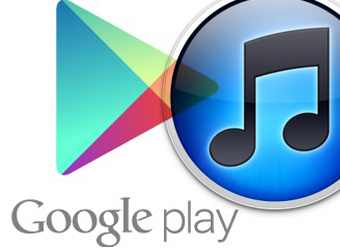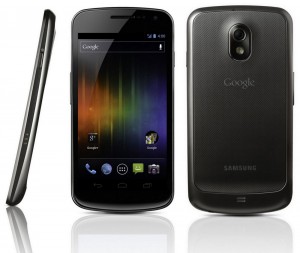If you listened to everyone around you, you’d probably be under the impression that everyone has an iPhone or an iPad and they are the greatest devices in all the world. These people no doubt love their products (which is a good thing), but for them to imply that Apple has this leading edge over the competition in both quality and quantity is just absurd.
The Numbers
 The fact is that Apple only has a 17% U.S. market share of phones as compared to Samsung who has 25.7%. Even LG beats out Apple with their 18% share. So why do we all believe that everyone has an iPhone?? Maybe they’re including the total products that have iOS installed…nope…it looks like Google wins that battle with 52.6% of all tablet and phone devices running Android leaving Apple’s iOS with only a 34.3% stake. Ok, maybe they’re counting mobile shares worldwide?! Again, not a chance; together, Samsung and Nokia share 41% of the international smartphone market while Apple only has 5%.
The fact is that Apple only has a 17% U.S. market share of phones as compared to Samsung who has 25.7%. Even LG beats out Apple with their 18% share. So why do we all believe that everyone has an iPhone?? Maybe they’re including the total products that have iOS installed…nope…it looks like Google wins that battle with 52.6% of all tablet and phone devices running Android leaving Apple’s iOS with only a 34.3% stake. Ok, maybe they’re counting mobile shares worldwide?! Again, not a chance; together, Samsung and Nokia share 41% of the international smartphone market while Apple only has 5%.
What Apple does have is the “it” factor. They have everyone believing that they do have the greatest product in all the world and that Apple is so innovative and chic that if you don’t own something with their logo on it, you’re somehow not hip. To me, this is similar to when celebrities wear certain clothes, eat certain food or drive certain cars; immediately the sales of these specific products go up. Does this mean Apple is a sham; pushing products that don’t meet expectations? Not at all…it just means that you don’t have to own an iPhone because you think it makes you look cool. And it also means that not everyone has an Apple device.
So what are your choices? Well, if we stick to talking about phones and tablets, the amount of choices is astounding. And if for the sake of this conversation, we push aside smaller competing phones such as Windows Phone, Blackberry and Nokia phones with their meeGo software (which I think is pretty much defunct), then we’re left with two titans: Apple’s iOS and Google’s Android.
The Smartphone
One glaring problem for Apple is that they only have one device (not counting older models). The iPhone 5 is the latest version and offers the first iPhone with 4G data speeds. Making the switch here is very easy considering that you have tons of devices running Android software with Samsung being the reinging king here.
What to look for: Android devices come in a vast range of styles, specs, designs and features. No two Android devices look or work the same. This causing confusion among consumers because people who aren’t too tech savvy don’t know why one device is better than the other. This is why I think Apple holds an edge…they provide one device with one way to use it.
As with any purchase, you want to find something that fits your needs. If you need a file manager on your phone, you need Android. Apple doesn’t have it. If you want a better voice recognition program, Siri has Android beat…for now. If you plan on torrenting downloads on your phone, get Android because Apple won’t allow it.
In other words, there’s hardly anything (if anything) that an Android device can’t do that an iPhone can, but I think of plenty of things iPhones can’t do that Androids can!
The Tablet
There’s no doubt that the iPad is one sexy beast. But the problem is that there was a thought process long ago that dictated tablets would be used to replace computers. Unfortunately, iPad comes up short on this because it’s nothing more than a super-sized iPhone. Still no file system, still no mouse support and certainly no easy way to move files from computer to computer.
Android tablets fair a lot better in most cases, but are plagued again with the fact that there are too many choices. The reason I say this is a problem is because what happens when one manufacturer decides to stop making the device? You lose support and upgrades to the software. Look what happened to HP’s TouchPad (although it didn’t originally run Android). As an aside, Android has practically saved the underground support for the defunct TouchPad with users replacing its original OS with Android!
What to look for: Again, the same rules apply as do for the smartphones. The one difference with the tablets would be the screen size. Android tablets currently come in 7 and 10in sizes with a few manufacturers choosing a less than standard size. So until Apple releases a smaller (and larger) iPad, Android takes the cake on this one as well.
The Ecosystem
One of the number one reasons why Apple fans choose to stay with Apple is because they’ve invested time and money into setting up iTunes and iCloud just the way they like it. I don’t blame them…it’s a nice system and if you’re someone who has dropped hundreds of dollars on apps, music, tv shows and movies over the years, making a switch to Android and having to do the same thing all over is a daunting idea!
But for those of you who aren’t heavily invested and are just questioning whether Google and Android can compare with Apple and iTunes, then you’d be happy to know that once again, Google can do anything Apple can do.
So instead of iTunes, iOS and iCloud, you would use Google Play, Android and Google Drive. Many of you probably already have a Gmail account, so you’re already 99% ready for the switch! But how do these three compare?
iTunes and Google Play
 Google doesn’t have a dedicated software program that you install on your computer like iTunes. They believe that applications are headed to the cloud anyway, so why not start there?
Google doesn’t have a dedicated software program that you install on your computer like iTunes. They believe that applications are headed to the cloud anyway, so why not start there?
- Music, movies and tv shows — I’m sure there are some things you’d find on one, but not the other, but overall, you can just about the same content.
- Apps — Apple touts how many apps they have, but they tend to leave out one important detail: many of those apps are duplicates of others. I mean really, how many flashlight apps do we need? While Google counts apps in the same fashion, they don’t seem to bank on the number as an indicator of their quality. However, there are many apps that iPhone users have that Android users don’t with just as many that Android users have that iOS users don’t. It comes down to which apps and games are more important to you, so head on over to Google.com/play and take a look if it’s there.
iCloud and Google Drive
Both services offer the same features…store items and device backups in the cloud. So what’s so different? Well for music storage, Apple offers iTunes match which is a feature that allows you to “match” your current music library of songs that weren’t purchased from iTunes on all your devices. In other words, instead of uploading 5,000 songs from your personal collection, iTunes Match will scour your library and give you free access to the songs for all your devices. It only costs $24.99 per year.
Google’s answer to this is to allow you to upload all of your music (up to 25,000 songs) to your Google Play account for free with no hits to your Google Drive 5GB storage limit. Cost per year: $0. The only drawback is you have to actually upload all of your songs…which for someone like me, could take a week.
Other than that, these two services are practically the same.
Final Thoughts
As some of my readers already know, I was a huge Apple fan for many years and this website was biased toward all products Apple at one point. However, I got a little put out when Apple kept releasing the same OS over and over again without really adding anything new. My brother being over on the Android side of things always showed me the features that his phones had and slowly but surely, I made the switch.
If anything, it was more of a test, but so far I’m about a year into it and I can honestly say I’ll never look back. Since I had already used Google for most of my services like email and all sorts of features used on my websites, it just made perfect sense.
 I love my Nexus GSM phone and even though it’s considered outdated by most standards, the phone is amazing! There are a few things I wish it had like external storage, a better camera and 4G compatibility, but overall I love it. I’ve never owned an LG device, but from the photos I’ve seen of this new device, I can say that I like what I see.
I love my Nexus GSM phone and even though it’s considered outdated by most standards, the phone is amazing! There are a few things I wish it had like external storage, a better camera and 4G compatibility, but overall I love it. I’ve never owned an LG device, but from the photos I’ve seen of this new device, I can say that I like what I see.

 Google doesn’t have a dedicated software program that you install on your computer like iTunes. They believe that applications are headed to the cloud anyway, so why not start there?
Google doesn’t have a dedicated software program that you install on your computer like iTunes. They believe that applications are headed to the cloud anyway, so why not start there?





